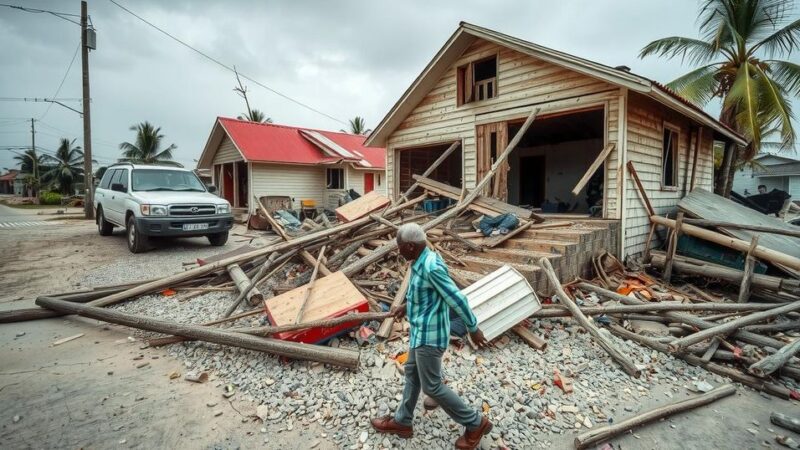At the COP29 climate summit, the Vatican has opposed discussions surrounding gender rights, particularly against a backdrop of the potential impact on support for women facing climate change. This resistance, shared with other conservative nations, risks stalling necessary progress on addressing the disproportionate effects of climate change on women. The implications of such a stance could hinder future initiatives designed to empower women and ensure their experiences are included in climate action plans.
A significant division has emerged at the COP29 climate summit in Azerbaijan as the Vatican has taken a stance against discussions focused on gender rights, particularly in relation to women’s support in climate initiatives. This opposition aligns the Vatican with several countries, including Saudi Arabia, Russia, Iran, and Egypt, which have collectively resisted updates to the ten-year-old UN action plan recognizing the unique challenges women face due to climate change. Despite the fact that women and girls comprise 80% of those displaced by climate change, these countries have expressed concerns that references to ‘gender’ might encompass transgender rights, thus hindering progress towards gender equality in climate policies.
Colombia’s environment minister has voiced disappointment, touching upon the stalling consequences of these negotiations. As there remains an urgent need to support women, particularly within developing nations, over the past decade, it has been established that women bear a disproportionate burden from climate change. The current deadlock threatens any potential agreement aimed at enhancing women’s resilience in the face of climate adversities. Observers from various charities have noted the unprecedented nature of such opposition from the Vatican on issues that had previously seen no contention in earlier discussions.
The unfolding scenario at COP29 reveals broader global tensions concerning women’s rights and LGBTQ+ issues. Despite Pope Francis’ more progressive stance on some matters, such as blessing same-sex couples, the Vatican continues to uphold traditional views on marriage and gender identity. Without tangible agreements achieved during this summit, there may be significant implications for the future of gender-focused climate frameworks as the existing UN programme is scheduled to expire by the end of this year. A lack of female representation within the negotiations has further contributed to the challenges faced regarding the integration of women’s perspectives and needs into climate change responses dedicated to affected communities.
Ultimately, the hesitance from certain nations and groups to accept progressive gender rights frameworks could impede meaningful advancements towards creating equitable solutions for those most affected by climate change, particularly women and marginalized communities.
The ongoing discussions at COP29 have highlighted significant global divisions regarding gender rights, particularly concerning how they intersect with climate change initiatives. The Vatican’s opposition, particularly in collaboration with other conservative nations, has obstructed necessary dialogues aimed at addressing the unique experiences of women affected by climate disruptions. Over the past decade, various international frameworks have recognized the imperative to integrate gender considerations into climate action, yet the recent refusal to acknowledge these terms threatens to stagnate progress. As the climate crisis disproportionately impacts women, who represent a considerable percentage of those affected, the stalling of crucial discussions signals a regression in recognizing and addressing these disparities.
In conclusion, the current developments at the COP29 summit reflect a troubling resistance to acknowledging gender rights within climate change discourse. The Vatican’s alignment with certain conservative governments against references to gender could undermine years of progress achieved in recognizing and combating the unique challenges faced by women impacted by climate change. The potential failure to reach an agreement before the expiration of the UN gender programme could leave women vulnerable and unsupported during critical climate crises. Therefore, continued advocacy and a call for equitable representation in negotiations remain essential for fostering inclusive climate action.
Original Source: www.bbc.com







